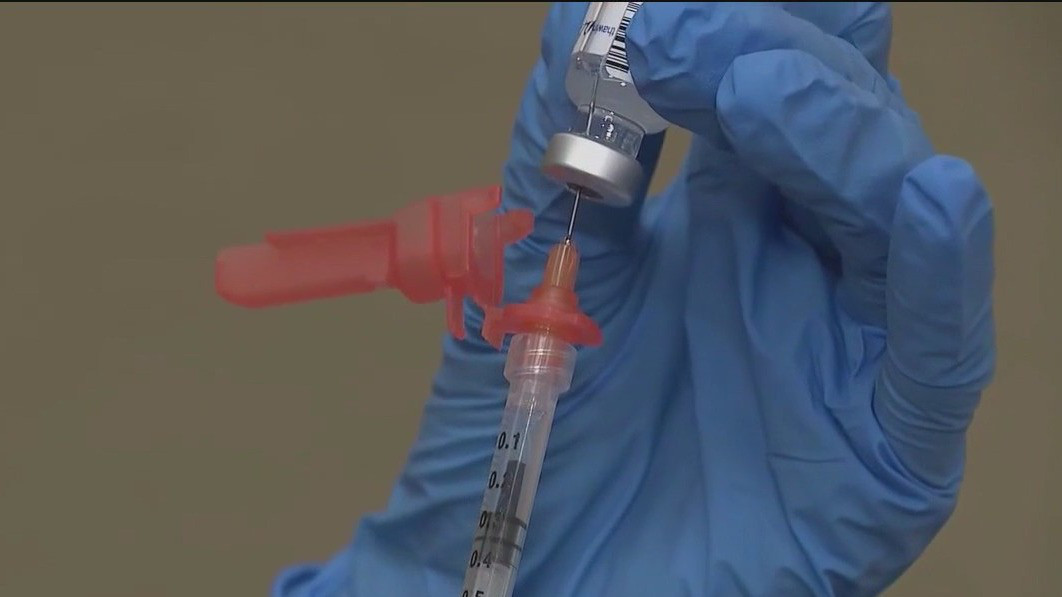
Two-whole-larvae of the New World screwworm. (CDC)
SACRAMENTO, Calif. – State health officials have issued a health advisory warning about a rare and previously eradicated parasite that can burrow itself into the flesh of humans and animals.
It’s called the New World Screwworm (NWS).
The parasitic fly was eradicated in the U.S. back in 1966. In 2017, the flies showed up in a small outbreak in the Florida Keys, but were quickly eliminated.
Now there are concerns about the species’ return.
What we know:
The California Department of Public Health said there were increased detections of NWS in southern Mexico and Central America, where the parasite had also been previously eradicated.
Last month, the Department of Health and Human Services said federal officials recently identified a travel-associated human case of NWS in the U.S.
“On August 4, 2025, CDC, in coordination with the Maryland Department of Health, investigated a confirmed case of travel-associated NWS in a patient who returned from travel to El Salvador,” DHHS said in a news release.
Threatening U.S. livestock industry
On Sunday, the U.S. Department of Agriculture announced that Mexico had confirmed a new case of New World screwworm. It was detected in Sabinas Hidalgo, in the state of Nuevo León, less than 70 miles from the U.S.-Mexico border, and a highly heavily trafficked commercial thoroughfare, the agency said.
The case marks the northernmost detection of NWS during this current outbreak, according to the USDA, which also noted that the case was “the one most threatening to the American cattle and livestock industry.”
U.S. Secretary of Agriculture Brooke L. Rollins said her agency is targeting the parasite as a top priority.
“This is a national security priority,” Rollins said in a news release and explained, “Currently, U.S. ports remain closed to imports of cattle, bison, and horses from Mexico.”
Infest in living flesh
The Centers for Disease Control and Prevention says NWS fly larvae infest in the living flesh of warm-blooded animals.
“The screwworm flies are attracted to and lay their eggs on and in open wounds and mucous membranes,” CDC health officials explained, adding that while it more commonly makes livestock its host, the parasite can also burrow into humans, pets, and birds.
The CDC said, currently, there is no medication to treat New World Screwworm.
NWS can cause myiasis, a parasitic infestation of fly larvae or maggots in human tissue.
Who’s at risk?
People with open sores or wounds, including from surgery, are among those at higher risk “as the flies will lay eggs on open sores,” the CDC said.
Others identified in the high risk group include people who frequently work with livestock, people who are around livestock in rural areas where the flies are present, and those who travel to areas where NWS is present.
Federal officials said the parasite is endemic in parts of South America, Cuba, Haiti, and the Dominican Republic.
The CDC also noted those at greater risk are “vulnerable populations,” like the immunocompromised, people experiencing malnutrition and “those at extremes of age.”
Symptoms
Health experts said NWS infestations are extremely painful, with symptoms including feeling the burrowing maggots moving within a skin wound or sore, or a person’s ears, nose, eyes, or mouth.
There can also be bleeding from open sores. Symptoms also include unexplained skin wounds or sores that do not heal or worsen within a few days.
“The larvae feed on healthy tissue, leading to pain, bloody discharge, and a foul-smelling odor from the site of infestation, with the potential for extensive tissue destruction and secondary bacterial infections,” the state department of health said.
Experts warned that when wounds get infected, it can lead to fever and chills.
SEE ALSO: ‘Kissing bug’ disease on track to be considered an endemic in US
California health officials noted that NWS is not directly contagious between animals or humans.
They urged anyone who feels or sees maggots in or on a wound to contact a health provider immediately.
They warned, those suspected of being infested should not try to remove any maggots or egg masses themselves.
“Your healthcare provider will need to remove each maggot, sometimes surgically,” federal health officials said, adding, “Do not throw any in the trash or outside as this could result in NWS spreading in your area.”


Source link
Experts Say These Foods Support Brain Health and Memory
What Happens to Your Blood Sugar When You Eat ‘Naked Carbs’
Food writer shares simple ‘third grader rule’ that can make healthy eating much easier for anyone